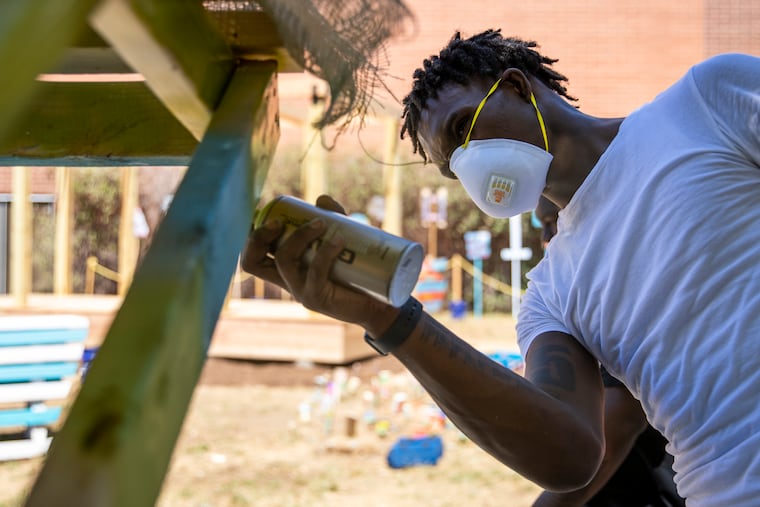Give Philly kids a job. It will save money in the long run.
Research shows that guaranteeing employment or a basic income helps reduce violence and prevent people from entering the criminal justice system. It's also the right thing to do.

Philadelphia has a desperate need to combat violence, reduce poverty, and improve quality of life for everyone in the city.
Rightfully, much of the discussion around these important issues has focused on policies that impact young people. Unfortunately, the focus has been on policies that stigmatize and criminalize the young, such as youth curfews and restricting young people’s access to spaces such as the Fashion District.
There is a better way. We must invest in our young people through evidence-based policies like guaranteed job and income programs, and fight to raise the minimum wage so that youth can work with dignity and receive living wages.
This is the season of “summer jobs” for kids out of school and college. But Pennsylvania residents between the ages of 16 and 24 make up more than half of the people who earn minimum wage, which is stuck at the lowest possible level — $7.25 per hour. Philly’s teen workers have one of the lowest wages among large metro areas in the United States. Moreover, 15% of 16- to 24-year-olds in Philadelphia — roughly 30,000 young people — are considered Opportunity Youth, meaning not enrolled in school or employed. With 37% of Philly children living in poverty, this is a missed opportunity.
Young people are often supporting not only themselves, but also their families, as the teen pregnancy rate in Philadelphia is nearly twice the statewide average. Young people need access to good jobs that pay a family-supporting wage.
For some young people, getting a job isn’t that simple. They may be new parents or transitioning out of foster care or incarceration, for instance. For them, guaranteed income programs — such as the one Philly is planning to provide 250 pregnant women next year — can be a bridge to stability while they prepare to further their education and employment goals.
There is a mountain of research supporting the idea that guaranteed job and income programs are effective at reducing poverty and providing long-term stability and connection to the labor market. According to a report by the Georgetown Law Center on Poverty and Inequality, many subsidized employment programs have also helped families rely less on public assistance, improved school outcomes among the children of workers receiving the benefit, kept kids and their parents out of the criminal justice system, improved psychological well-being, and reduced longer-term poverty.
Offering a basic income to young people who aren’t able to work could have similar benefits. A trial in Stockton, Calif., found that giving participants $500 per month for two months boosted their job prospects, financial stability, and overall well-being. Jackson, Miss., has the longest-running guaranteed income program in the United States, and gives Black mothers $1,000 per month for a year. According to their third cohort report, the vast majority of moms who participated felt more hopeful about their family’s future, and used the money to pay for trips for their kids, extracurricular activities, and school supplies.
There is also research showing that providing income to people reduces violence. What’s more, research shows that when young people are cut off from public benefits — in the form of Supplemental Security Income — at age 18, they are more likely to become involved in the criminal justice system.
For those who say guaranteed job and income programs are too expensive, there is a much higher cost to policies that criminalize young people. Not only do criminalization policies erode trust, cause trauma, and generate criminal records that make it harder for young people to access jobs, education, housing, and more, there is a high fiscal cost to these policies as well.
Incarcerating a young person for one year in Pennsylvania costs more than $40,000. And for individuals released from prison, 60% will be unemployed. Having a job — and especially making a living wage — makes it much less likely that young people will return to prison.
Investing in guaranteed job and income programs for young people is a research-backed and effective use of resources. Rather than stereotyping, excluding, and criminalizing our young people, Philadelphia needs to invest resources into lifting young people up and connecting them to meaningful opportunities to earn a living wage and pursue a bright future.
Jamie Gullen is the managing attorney of the Employment Unit and Youth Justice Project at Community Legal Services. She can be reached at jgullen@clsphila.org.